The Brisbane Bullets are a professional Australian basketball team based in Brisbane, Queensland, competing in the National Basketball League (NBL). As one of the NBL's foundation teams (1979), they competed until 2008 and returned in 2016. The Bullets have won three NBL championships (1985, 1987, and 2007) and reached the grand finals in 1984, 1986 and 1990. They have made 22 playoff appearances, marking them as a consistently competitive force in the NBL.
1979: Foundation of the Brisbane Bullets
In 1979, the Brisbane Bullets were established as one of the foundation teams in the National Basketball League (NBL).
1979: Bullets Established for NBL Foundation Season
In 1979, the Brisbane Bullets were established by the Brisbane Amateur Basketball Association for the inaugural season of the National Basketball League (NBL). Bruce Fitzgerald was the captain, and Bob Young was the head coach. Brisbane won 13 and lost five of their 18 games in the inaugural NBL season, finishing in fifth place. Cal Bruton finished as the league's highest points per game scorer of the season.
1979: Bullets Founded
In 1979, upon the Bullets' entry to the NBL, the team was based at the Auchenflower Stadium.
1980: Finals Appearance in Second NBL Season
In 1980, the Brisbane Bullets made it to the finals in their second NBL season. Dave Claxton took over as head coach. Finishing in third place after winning 17 of 22 games, the Bullets lost to the West Adelaide Bearcats in the second semi-final, 101–94. Brian Banks made the All-NBL first team that season.
1981: Playoffs Appearance
In 1981, Brisbane Bullets had a playoffs appearance.
1982: Missed Finals Qualification
In 1982, with new coach Rick Harden, the Brisbane Bullets missed out on qualifying for the finals, finishing eighth.
1983: Playoffs miss
In 1983, The Brisbane Bullets finished outside of finals contention.
1983: Outside of Finals Contention
In 1983, the Brisbane Bullets finished fifth, remaining outside of finals contention. Import guard Ron "The Rat" Radliff played his first season for the Bullets and in the NBL.
1983: Still at Auchenflower
In 1983, the Bullets were still based at the Auchenflower Stadium.
1983: NBL Split Divisions
In 1983, the NBL was split into Eastern and Western divisions during the regular season.
1983: Improvement from previous season
The 1984 season saw a major improvement from Brisbane Bullets' 10-12 record in 1983.
1984: Move to Sleeman Sports Centre
At the start of the 1984 season, the Bullets relocated to the Sleeman Sports Centre in Chandler.
1984: Grand Final Appearance
In 1984, the Brisbane Bullets competed in the NBL Grand Final.
1984: NBL Split Divisions
In 1984, the NBL was split into Eastern and Western divisions during the regular season.
1985: Smallest venue
In 1985 the smallest venue in the NBL was the 1,500 seat Perry Lakes Basketball Stadium in Perth and the average size NBL venue was just 3,008.
1985: Loggins Player of the Game
In 1985, Leroy Loggins was the Player of the Game in the NBL Grand Final win, but there was no official Grand Final MVP awarded.
1985: NBL Championship Win
In 1985, the Brisbane Bullets were successful and won an NBL championship.
1986: Cal Bruton leaves Bullets
At the end of 1986, Cal Bruton left the Brisbane Bullets after a falling out with Brian Kerle.
1986: Grand Final Appearance
In 1986, the Brisbane Bullets competed in the NBL Grand Final.
1986: Move to Brisbane Entertainment Centre and Grand Final Loss
In 1986, the Brisbane Bullets moved to the Brisbane Entertainment Centre. They finished third in the regular season and progressed to their third Grand Final in a row, losing to the Adelaide 36ers 2–1 in the three-game series. The first game saw over 11,000 fans, which was a then indoor sports attendance record in Australia. Leroy Loggins was voted the league's MVP for the second time, but fouled out of Game 1 and 3 of the Grand Final series.
1986: 1986 Grand Final Game 1
In 1986, the Brisbane Entertainment Centre hosted the NBL's first 10,000-plus Grand Final attendance when 11,000 fans saw Game 1 of the Grand Final series between the Bullets and the Adelaide 36ers.
1986: Move to Brisbane Entertainment Centre
Midway through 1986, the Bullets relocated to the Brisbane Entertainment Centre in Boondall.
1987: Second NBL Championship
In 1987, the Brisbane Bullets finished second with a 20–6 season. They defeated the Illawarra Hawks to advance to their fourth grand final in a row, where they faced the Perth Wildcats. The Bullets won their second NBL championship, winning the first game 80–79 in Perth and Game 2 106–87 in Brisbane. Leroy Loggins won his third MVP award and was voted as the Grand Final MVP.
1988: NBL Coach of the Year Award
Former Bullets coach Bruce Palmer won the NBL Coach of the Year in 1988.
1988: Elimination Final Loss
In 1988, the Brisbane Bullets finished third with an 18–6 record but lost in the elimination final. Shane Heal won the NBL's Rookie of the Year award.
1989: Championship Winning Coach
Former Bullets coach Bruce Palmer was a championship winning coach of the North Melbourne Giants in 1989.
1989: Missed playoffs for the first time since 1983
In 1989, the Brisbane Bullets failed to make the playoffs for the first time since 1983, finishing eighth with an 11–13 record. The team's line-up was extensively overhauled.
October 1990: Grand Final Game 2
On 26 October 1990, the largest attendance for the Bullets occurred when 13,221 fans saw them defeat the Perth Wildcats 106–90 in Game 2 of the 1990 Grand Final series.
1990: Last Grand Final Appearance
Brisbane made their first NBL grand final since 1990.
1990: Lineup Changes After Disappointing Season
Following the disappointing 1989 season, in 1990, the Bullets' line-up underwent extensive changes. Leroy Loggins, Greg Fox, and Robert Sibley were the only players to continue with the club, while Larry Sengstock and Ron Radliff joined the Gold Coast Cougars.
1990: Grand Final Appearance and Crowd Record
In 1990, boosted by new imports Derek Rucker and Andre Moore, the Brisbane Bullets finished third and made it to the grand final, losing to the Perth Wildcats 2–1. Game 2 saw a then NBL grand final record crowd of 13,221 at the Brisbane Entertainment Centre. Brian Kerle won his second Coach of the Year award, and Derek Rucker won the NBL's MVP award.
1991: Unsuccessful Season
The 1991 season was unsuccessful for the Brisbane Bullets, as the team finished in ninth place with a 13–13 record.
1992: Venue size increases
By 1992, the average size of NBL venues had risen to 7,155.
1992: Return to the Finals
In 1992, the Brisbane Bullets were back in the finals, making it to the quarter-finals.
1992: National Tennis Centre opens
In 1992, the South East Melbourne Magic and Melbourne Tigers started using the 15,400 capacity National Tennis Centre (now Rod Laver Arena)
1993: Semi-Finals Appearance
In 1993, Bruce Palmer became the new Bullets coach, and the team made it as far as the semi-finals.
1994: Quarter-Finals Appearance
In 1994, the Brisbane Bullets made it as far as the quarter-finals, finishing in fifth place.
1996: Quarter-Finals Appearance
In 1996, the Brisbane Bullets made it as far as the quarter-finals, finishing in sixth place.
1997: David Ingham as head coach
David Ingham took over as head coach for the 1996 and 1997 seasons
1997: End of stay at Boondall
The Bullets stayed at Boondall until the end of the 1997 season.
1998: Move to Brisbane Convention & Exhibition Centre
From 1998, the high cost of playing at the Brisbane Entertainment Centre forced the Brisbane Bullets to move to the Brisbane Convention & Exhibition Centre.
2000: Brian Kerle ends time as head coach
Brian Kerle returned to the club to coach the Brisbane Bullets from 1998 to 2000.
2000: Failed Finals Appearance
The Brisbane Bullets failed to get to the finals during the early years of the 2000s.
2003: Respectable Ladder Placement
In the 2003–04 season, the Brisbane Bullets won 22 of their 33 fixtures to finish fourth on the ladder.
2004: Qualified for Finals
The Brisbane Bullets qualified for the finals in the 2004-05 season.
2005: Expectations Rise with New Addition
After the 2005–06 season, the addition of veteran Mark Bradtke raised expectations for the Bullets.
2005: Qualified for Finals
The Brisbane Bullets qualified for the finals in the 2005-06 season.
2006: Pre-Season Success
During the 2006–07 pre-season Blitz, the Bullets won all three of their group stage games and defeated the Melbourne Tigers to win the pre-season title.
2006: Minor Premiership
For the 2006-07 season, the Brisbane Bullets easily won the minor premiership.
2007: Third NBL Championship
In 2007, the Brisbane Bullets achieved their third NBL championship.
2007: Return to Brisbane Entertainment Centre for Grand Final
In 2007, the Brisbane Bullets moved back to the Brisbane Entertainment Centre for the NBL Grand Final series against the Melbourne Tigers, despite the Convention Centre being their home venue at the time.
2007: Childcare centre mogul owner
In the 2007-08 season, the Bullets' childcare-centre mogul owner Eddy Groves ran into financial strife with his ABC Learning Centres empire.
March 2008: Sale Announcement Due to Financial Issues
In March 2008, Brisbane Bullets' owner Eddy Groves announced he would be forced to sell the club due to financial difficulties with his ABC Learning Centres empire.
April 2008: New Owner Announced
On April 16, 2008, David Kemp was announced as the new owner of the Brisbane Bullets.
June 2008: License Returned to NBL
On June 30, 2008, the Brisbane Bullets' license was returned to the NBL after attempts to find a new ownership group were unsuccessful.
June 2008: Return of Bullets license to NBL
On June 30, 2008, the Brisbane Bullets' license was returned to the NBL due to the owner's financial difficulties and the failure to find new ownership.
2008: Bullets' departure from NBL
In 2008, the Brisbane Bullets ceased competing in the NBL.
2008: End of Convention Centre Era
In 2008, the Brisbane Bullets' time at the Brisbane Convention & Exhibition Centre came to an end.
August 2011: Progress Towards Return
In August 2011, Basketball Australia CEO Larry Sengstock revealed significant progress towards returning a team to Brisbane for the 2012–13 season, with the team potentially called the Bullets.
May 2012: Return Rejected
In May 2012, the NBL announced that the Bullets' return was rejected after another Queensland-based team, the Gold Coast Blaze, went into administration.
2012: Grand final crowd record broken
The NBL grand final record crowd of 13,221 at the Brisbane Entertainment Centre in 1990 remained the highest ever grand final crowd for a game played outside of Melbourne until 13,527 saw Game 2 of the 2012–13 Grand Final series between the Wildcats and New Zealand Breakers at Perth Arena.
November 2013: NBL Prioritizes Bullets Return
In November 2013, CEO Fraser Neill announced that bringing the Brisbane Bullets back to Brisbane was a priority for the NBL under new management.
2014: NBL hopes for Brisbane franchise return
During the 2014–15 season, the NBL expressed hopes for the return of a Brisbane-based franchise, raising the possibility of the Bullets' resurrection.
September 2015: Bullets Return to NBL
In September 2015, it was announced that the Bullets would return to the NBL for the 2016–17 season, adopting maroon and gold as their primary colors and returning to the Brisbane Convention & Exhibition Centre.
September 2015: Bullets' revival announced
On September 17, 2015, it was announced that the Bullets would be revived and would return to the NBL in 2016–17.
2016: Return to NBL
In 2016 the Brisbane Bullets returned to the NBL after public outcry to have a Brisbane team back in the NBL
2016: Convention Centre Home Venue
With their return to the NBL in 2016, the Brisbane Bullets chose the Convention Centre as their regular home venue, and the Entertainment Centre in Boondall as their alternate venue for marquee matches.
2017: Traditional colors return
In 2017, the Bullets' traditional colors of blue and gold were brought back for the 2017–18 season.
2019: Relocation to Nissan Arena
In 2019, the Brisbane Bullets relocated to Nissan Arena, combining their front office, training centre and home stadium into one facility.
June 2024: Return to Brisbane Entertainment Centre
In June 2024, the Brisbane Bullets announced that they would return to the Brisbane Entertainment Centre for the 2024–25 NBL season.
Mentioned in this timeline

Basketball is a team sport played on a rectangular court...

Instagram is a photo and video-sharing social networking service owned...
Facebook is a social media and networking service created in...
New Zealand is an island country located in the southwestern...
Australia officially the Commonwealth of Australia encompasses the Australian mainland...
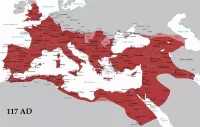
An empire is a political structure consisting of a dominant...
Trending
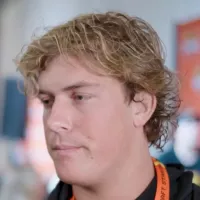
27 days ago Jaxson Dart Returns for Giants Against Patriots After Turbulent, Injury-Filled Season
3 months ago Maple Leafs-Red Wings Game Time Changed to Avoid Conflict with Blue Jays
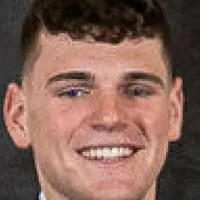
2 months ago Donovan Clingan impresses in Preseason; Predicted to achieve Double-Double average this season.
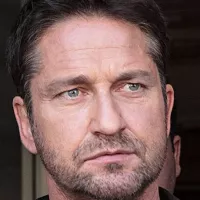
3 months ago Gerard Butler's 'Law Abiding Citizen' resurgence: A streaming comeback 15 years later.
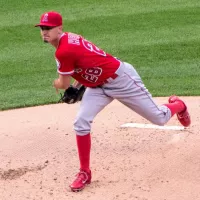
9 months ago Yankees seek series win after Fried's victory over Pirates, continuing homer barrage.
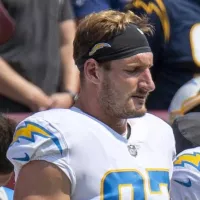
2 months ago Joey Bosa Lists Los Angeles Mansion for $3.7 Million Amid Bills Transition.
Popular

XXXTentacion born Jahseh Dwayne Ricardo Onfroy was a controversial yet...

Stranger Things created by the Duffer Brothers is a popular...
The Kennedy Center Honors are annual awards recognizing individuals and...
Turning Point USA TPUSA is an American nonprofit organization founded...

Candace Owens is an American conservative political commentator and author...

Bernie Sanders is a prominent American politician currently serving as...